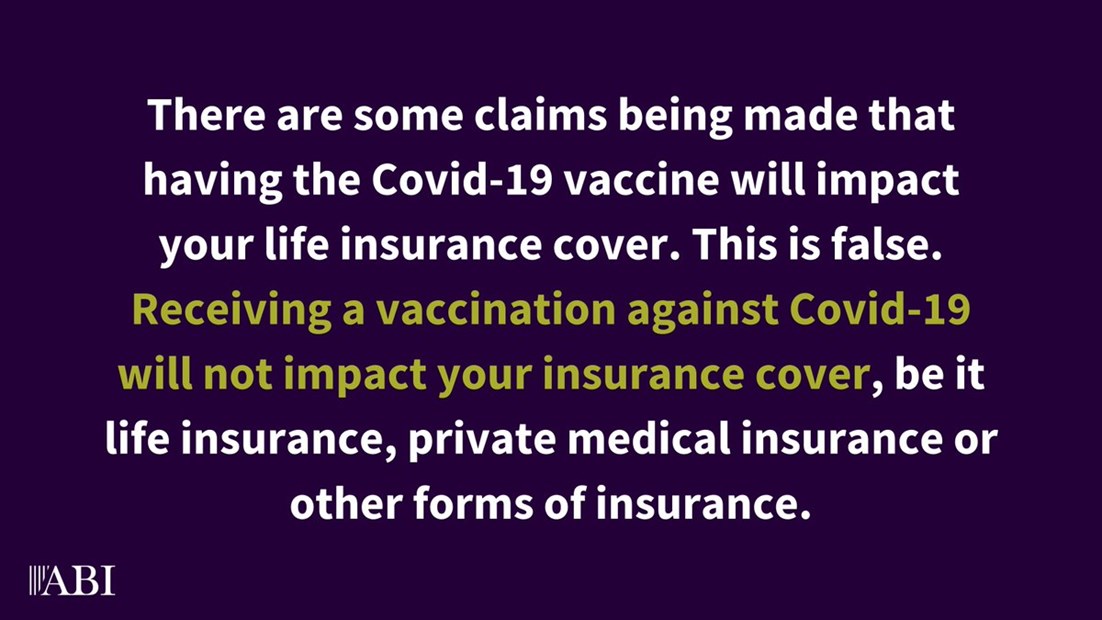Life Insurance
£202 million paid by life insurers to support families
Since the start of the pandemic, insurers have been working to support customers and have paid out £202 million - the equivalent of £553,000 every day - to support the families of people who tragically died due to COVID-19 in 2020 according to figures released in March 2021.
Our commitment to protection insurance customers:
During the COVID-19 crisis and the unprecedented demands on our health system, the Protection insurer members of the Association of British Insurers (ABI) have offered support to all their customers who may be affected by the impact of Coronavirus when making a claim on a life, critical illness, or income protection policy and reducing the burden on the National Health Service (NHS).
Life insurance (which is sometimes called life cover or death cover) can provide a cash lump sum in the event of your death, or if you become diagnosed with a critical illness. (You can include critical illness cover as part of your life insurance or take it out as a separate policy). By paying a monthly premium or a lump sum to your insurer for life insurance, you can safeguard your loved ones from financial hardship if you die or suffer from one of a list of illnesses. The money can be put towards funeral costs, payment of a mortgage, debts, or your family’s living expenses.
Click here for more information on life insurance, or you can see below some frequently asked questions specific to the coronavirus outbreak.
Frequently Asked Questions on Life Insurance:
If you or a loved one has to make a claim on a life insurance policy as a result of coronavirus, it would be handled like any other life insurance claim and would be paid subject to the usual policy terms and conditions.
Life insurance companies have developed specific questions to assess the risk around coronavirus for new applications. This is simply to make sure that they have the full picture when they assess your health and medical circumstances.
Coronavirus questions may include:
- Have you tested positive for coronavirus?
- Are you currently in self-isolation?
- Have you had any symptoms of coronavirus?
- Have you been in direct contact with anyone who has been diagnosed or suspected of having a coronavirus?
If you answer yes to some of these questions, your decision may be delayed until you have recovered. The decisions may vary between insurer.
If you’re classed as being high-risk because of your medical condition such as people with severe Diabetes, Asthma, Heart Conditions, Auto-immune Diseases, and a number of other conditions, then you won’t be classed as ‘self-isolating’ unless you’ve got symptoms. People who are being advised to stay at home to keep themselves safe will just be classed as a standard low-risk individual.
-
Life insurance policies typically have a period of grace after a non-payment of premiums before they lapse. However, each insurer will have a different policy and we urge customers to contact their insurers as soon as possible if you miss a payment.
-
The reason for a missed payment could also have an impact on how it is treated by an insurer, for example if a customer is seriously ill or experiencing financial difficulty.
-
If you can’t make a payment and plan to cancel your direct debit, we urge you to contact your insurer as soon as possible to discuss your options.
If a customer is experiencing financial difficulty, we urge them to contact their insurer as soon as possible to discuss their options, such as payment deferrals or holidays. Circumstances in which a payment holiday is accepted, according to the terms and conditions of a policy, will be down to individual insurers.

